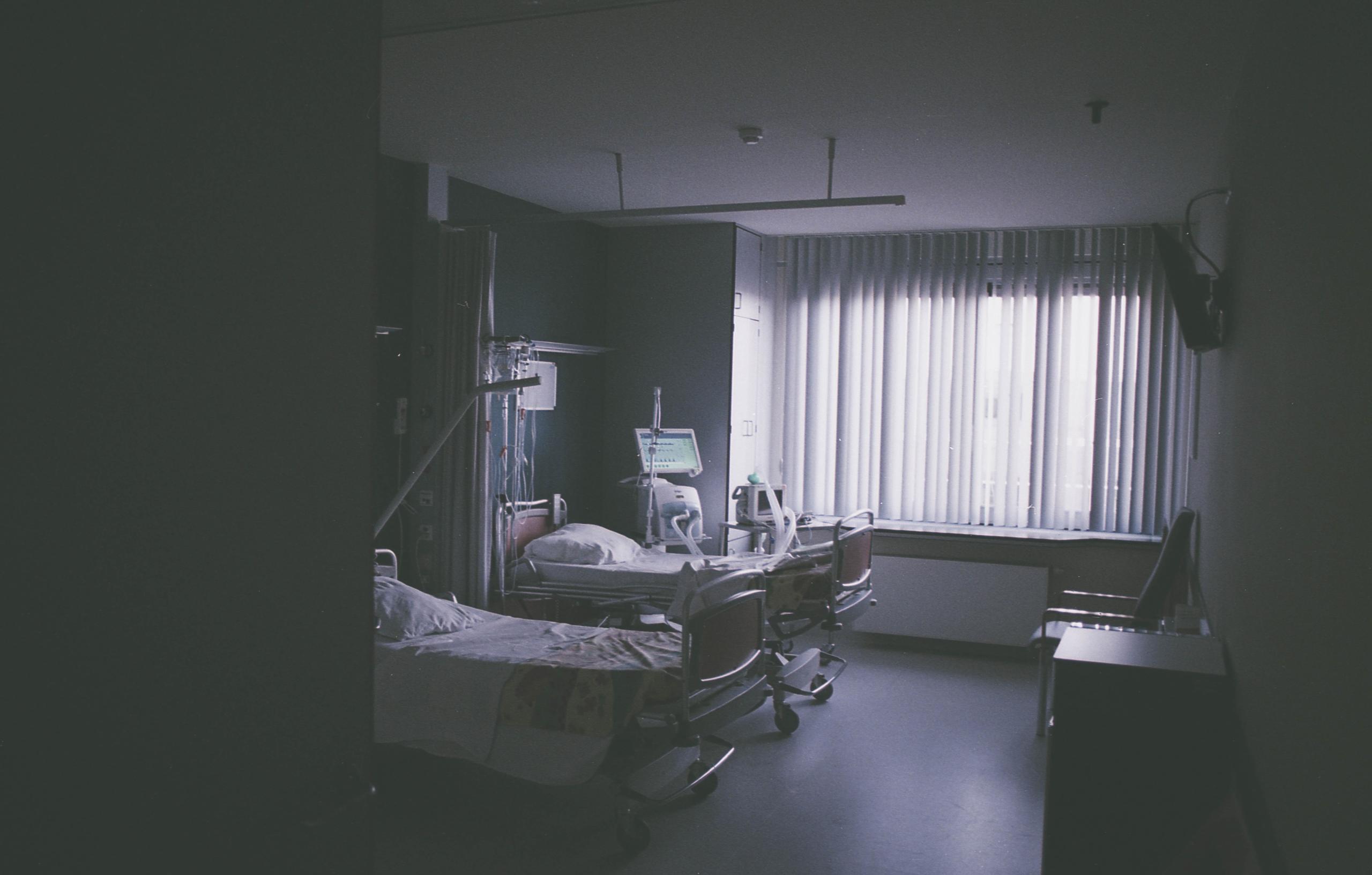Since the outbreak of Coronavirus in the UK last year, the pandemic has taken a serious toll on the NHS with Professor Chris Withy reporting that the NHS is facing ‘the worst crisis in living memory’ (Daily Mail, January 2021). As a result, many Brits face medical treatment delays in 2021.
Though unavoidable for now, the effects of delayed or compromised medical treatment can be extremely worrying and in some cases will have a lasting impact on the patient’s health.
To find out more about the public’s experience with medical care since the pandemic began, Patient Claim Line commissioned a survey of 2,000 UK residents which delves into NHS delays, why many are postponing their own treatments, and attitudes and fears towards medical care amongst the nation.
To provide a clearer picture of how the issue currently stands, we’ve also collected seven key statistics about COVID-induced treatment delays. Two Solicitors from Patient Claim Line have also shared their expertise on patient rights and how patients can get access to the medical care they need, as well as highlighting the dangers of delaying treatment.
Combined with our survey data, here is everything that you need to understand how the pandemic has, and continues to affect NHS medical treatment across the nation.
NHS treatment delays: key stats
- Almost 200,000 patients are now waiting at least a year for routine NHS operations (Independent, January 2021)
- More than 650,000 people with cancer in the UK (22%) have experienced disruption to their cancer treatment or care because of Covid-19 (Macmillan, October 2020)
- There was a 21% drop in the number of transplant surgeries in 2020 compared to 2019 due to the first wave of Coronavirus (Independent, January)
- A third fewer heart operations than expected were performed in England from January to the end of November 2020 (British Heart Foundation, January)
- The number of patients waiting over one year for specialist treatment has risen 137-fold compared to 2019 (BMA, January)
- About 600,000 cervical cancer smears failed to go ahead in the UK in April and May due to delays (Jo’s Cervical Cancer Trust, June)
- In November, the number of people having to wait more than 52 weeks to start hospital treatment in England was 192,169 which is the highest number per month since May 2008. (NHS England/Office of National Statistics, January)
New data: how has the pandemic affected Brits’ medical treatment?
Below are the key takeaways from our recent survey of 2,000 nationally representative participants.
Treatment delayed by NHS
Nearly half of Brits have had their medical treatment delayed by the NHS since the pandemic started (Source: Patient Claim Line)
- 73% of Brits believe that the pandemic will have a direct effect on their medical treatment this year.
- 49% of Brits have had their medical treatment delayed by the NHS since the pandemic started.
- Of those that had their medical treatment delayed by the NHS, 45% have seen their condition worsen as a result.
What can I do if my treatment has been delayed by the NHS?
Patient Claim Line Senior Solicitor Hannah Luscombe answers.
“Firstly, you are entitled to treatment from a GP at the surgery where you are registered. You are only able to receive NHS hospital treatment when you are referred by your GP (unless you need urgent medical attention in an emergency).”
“When you are referred for a hospital appointment, you can choose to go to any NHS hospital that provides that service. You have the right to choose a team or consultant, provided that your referring doctor agrees that your choice is appropriate. You can choose a team based at any hospital.”
“If you need urgent medical attention or your condition is life threatening, you can go directly to A&E without needing a referral from your GP.”
“You also have the right to use hospital services within the maximum waiting times. Waiting times may vary between hospitals and therefore if your condition is not urgent, you may wish to select a hospital with a shorter waiting list. You can compare waiting lists on the NHS website here.”
“If this is not possible, your local CCG must try to offer you a range of suitable alternative treatment providers if you ask it to do so.”
“You are also entitled to get a second opinion after seeing a consultant. You will need to request this from the consultant or your GP.”
“Finally, if you remain dissatisfied with the treatment you are receiving, you may consider it necessary to make a complaint using the NHS complaints procedure.”
If your condition is urgent, you can call 111 or, in a medical emergency, call 999 for assistance.
Patients postponing their own treatment
Half of Brits who are awaiting scheduled medical treatment have delayed their treatment themselves through fear of putting additional strain on the NHS (Source: Patient Claim Line)
- Of those patients who have had NHS medical treatment scheduled since the pandemic started, 28% have delayed their own treatment due to COVID and 28% are considering delaying their medical treatment (but haven’t yet).
- The main reason that Brits are delaying their own medical treatment is due to fears that they’ll catch COVID during their appointment – with 53% of Brits sharing these concerns.
- 52% of Brits delayed their own treatment because they didn’t want to put a strain on the NHS.
- 22% of females have delayed their own medical treatment due to COVID compared to 16% of males.
- Only 28% of Brits over 55 were worried about catching COVID during medical treatment, whereas this was a reason that 42% of 18-24 year olds would delay their own treatment.
Half of the people who delayed their own medical treatment due to the pandemic have seen their condition worsen as a result.
What are the potential dangers of delayed treatment?
Patient Claim Line Senior Litigation Executive Kirsty Parkes answers.
“It is important for you to get help if you are concerned about your health, condition or treatment. In the first instance, you should speak to your GP and explain your concerns. Your GP will not only be able to give you advice about what to do, but they may be able to request that your hospital treatment is brought forward or expedited if your condition warrants you being seen as a matter of greater urgency.”
“In many instances, patients may have accepted delays of a few months whilst the NHS got on top of the pandemic, however delays extending to many months and even years, become increasingly difficult to cope with.”
“More and more patients are being added to waiting lists daily for “non-urgent” surgeries, for example hip replacements; maxillofacial procedures; or non-urgent vascular or urological procedures. In the meantime, these patients are often experiencing severe levels of pain and discomfort and are unable to carry on with their daily lives as a result. In many of these cases it is often the case that the sooner treatment is received, the better the chances are for long-term recovery.
If your condition is urgent, you can call 111 or, in a medical emergency, call 999 for assistance.
How has the pandemic affected NHS medical treatment near me?
“Whilst the impact of the pandemic has been felt nationally, some parts of the country have been affected more than others, particularly if there have been higher levels of transmission in those areas,” explains Hannah Luscombe, Senior Solicitor. “Delays may therefore vary, depending on which part of the country you are in.”
East Anglia
- 76% of East Anglians have reported that they appreciate the NHS more now than before the pandemic.
- 22% of the region have had medical treatment delayed by the NHS and seen their condition worsen as a result.
- 20% of the region have delayed their medical treatment and 18% are or have considered delaying it.
- 65% of East Anglians who delayed their treatment did so because they don’t want to put an extra strain on the NHS, and 62% did so because they are worried about catching COVID whilst getting treatment.
- 51% of the participants said that their condition worsened as a result of delaying their treatment.
East Midlands
- 74% of those from the East Midlands have reported that they appreciate the NHS more now than before the pandemic.
- 19% of the region have had medical treatment delayed by the NHS and seen their condition worsen as a result.
- 15% of the region have delayed their medical treatment and 15% are or have considered delaying it.
- 47% of East Midlanders who delayed their treatment did so because they don’t want to put an extra strain on the NHS, and 58% did so because they are worried about catching COVID whilst getting treatment.
- 52% of the participants said that their condition worsened as a result of delaying their treatment.
London
- 81% of Londoners have reported that they appreciate the NHS more now than before the pandemic.
- 25% of the region have had medical treatment delayed by the NHS and seen their condition worsen as a result.
- 21% of the region have delayed their medical treatment and 27% are or have considered delaying it.
- 39% of Londoners who delayed their treatment did so because they don’t want to put an extra strain on the NHS, and 60% did so because they are worried about catching COVID whilst getting treatment.
- 49% of the participants said that their condition worsened as a result of delaying their treatment.
- London currently is the region with the highest proportions of people testing positive for coronavirus (Office for National Statistics, January).
- There were 3,840 cancer patients in London that have been waiting more than two months for their first treatment (The Sunday Telegraph, January).
North East
- 84% of those from the North East have reported that they appreciate the NHS more now than before the pandemic.
- 13% of the region have had medical treatment delayed by the NHS and seen their condition worsen as a result.
- 17% of the region have delayed their medical treatment and 24% are or have considered delaying it.
- 76% of North Eastern participants who delayed their treatment did so because they don’t want to put an extra strain on the NHS, and 32% did so because they are worried about catching COVID whilst getting treatment.
- 36% of the participants said that their condition worsened as a result of delaying their treatment.
- The North East has the second lowest number of COVID cases in the UK (Statista, January).
North West
- 80% of those from the North West have reported that they appreciate the NHS more now than before the pandemic.
- 23% of the region have had medical treatment delayed by the NHS and seen their condition worsen as a result.
- 23% of the region have delayed their medical treatment and 17% are or have considered delaying it.
- 60% of North Western participants who delayed their treatment did so because they don’t want to put an extra strain on the NHS, and 61% did so because they are worried about catching COVID whilst getting treatment.
- 54% of the participants said that their condition worsened as a result of delaying their treatment.
- The North West has one of the second highest proportions of people testing positive for coronavirus (Office for National Statistics, January).
Northern Ireland
- 79% of Northern Irish residents have reported that they appreciate the NHS more now than before the pandemic.
- 26% of the region have had medical treatment delayed by the NHS and seen their condition worsen as a result.
- 13% of the region have delayed their medical treatment and 17% are or have considered delaying it.
- 50% of North Irish participants who delayed their treatment did so because they don’t want to put an extra strain on the NHS, and 63% did so because they are worried about catching COVID whilst getting treatment.
- 71% of the participants said that their condition worsened as a result of delaying their treatment.
Northern Ireland has the lowest number of coronavirus cases in the UK (Statista, January).
Scotland
- 78% of Scottish residents have reported that they appreciate the NHS more now than before the pandemic.
- 19% of the region have had medical treatment delayed by the NHS and seen their condition worsen as a result.
- 14% of the region have delayed their medical treatment and 19% are or have considered delaying it.
- 71% of Scottish people who delayed their treatment did so because they don’t want to put an extra strain on the NHS, and 56% did so because they are worried about catching COVID whilst getting treatment.
- 35% of the participants said that their condition worsened as a result of delaying their treatment.
- The North East has the third lowest number of COVID cases in the UK (Statista, January).
South East
- 77% of the South East have reported that they appreciate the NHS more now than before the pandemic.
- 20% of the region have had medical treatment delayed by the NHS and seen their condition worsen as a result.
- 16% of the region have delayed their medical treatment and 14% are or have considered delaying it.
- 55% of the South East people who delayed their treatment did so because they don’t want to put an extra strain on the NHS, and 51% did so because they are worried about catching COVID whilst getting treatment.
- 20% of the participants said that their condition worsened as a result of delaying their treatment.
- The South East has the third highest number of COVID cases in the UK (Statista, January).
South West
- 76% of the South West have reported that they appreciate the NHS more now than before the pandemic.
- 23% of the region have had medical treatment delayed by the NHS and seen their condition worsen as a result.
- 20% of the region have delayed their medical treatment and 17% are or have considered delaying it.
- 43% of the South East locals who delayed their treatment did so because they don’t want to put an extra strain on the NHS, and 41% did so because they are worried about catching COVID whilst getting treatment.
- 47% of the participants said that their condition worsened as a result of delaying their treatment.
- The North East has the fourth lowest number of COVID cases in the UK (Statista, January).
Wales
- 71% of Wales have reported that they appreciate the NHS more now than before the pandemic.
- 25% of the region have had medical treatment delayed by the NHS and seen their condition worsen as a result.
- 20% of the region have delayed their medical treatment and 16% are or have considered delaying it.
- 35% of Wesh residents who delayed their treatment did so because they don’t want to put an extra strain on the NHS, and 74% did so because they are worried about catching COVID whilst getting treatment.
- 47% of the participants said that their condition worsened as a result of delaying their treatment.
West Midlands
- 86% of the West Midlands have reported that they appreciate the NHS more now than before the pandemic.
- 27% of the region have had medical treatment delayed by the NHS and seen their condition worsen as a result.
- 22% of the region have delayed their medical treatment and 21% are or have considered delaying it.
- 47% of West Midlanders who delayed their treatment did so because they don’t want to put an extra strain on the NHS, and 55% did so because they are worried about catching COVID whilst getting treatment.
- 63% of the participants said that their condition worsened as a result of delaying their treatment.
- The West Midlands has the fourth highest number of COVID cases in the UK (Statista, January).
Yorkshire and the Humber
- 71% of Yorkshire and the Humber have reported that they appreciate the NHS more now than before the pandemic.
- 19% of the region have had medical treatment delayed by the NHS and seen their condition worsen as a result.
- 21% of the region have delayed their medical treatment and 19% are or have considered delaying it.
- 51% of Yorkshire and the Humber residents who delayed their treatment did so because they don’t want to put an extra strain on the NHS, and 55% did so because they are worried about catching
- COVID whilst getting treatment.
- 44% of the participants said that their condition worsened as a result of delaying their treatment.
If you’ve experienced delays to your medical treatment that have caused avoidable pain or suffering, you could be entitled to make a medical negligence claim for compensation. Find out more about how to make a claim here.
Survey Data
The survey was conducted by Onepoll on 2,000 respondents and is a nationally representative sample. Additional data is available on request for specific regions, age groups and gender.




